Dear readers,
There is a quiet, persistent belief that authors self-publish because they have to — because traditional publishing isn’t an option.
Lately, we’ve been reconsidering the assumptions around self-publishing, particularly as we explore better ways to honor these books while managing our increasing volume of review requests.
What we’ve learned is, for many, self-publishing is a deliberate, powerful choice — one that allows writers to maintain creative control, speed up timelines, tell overlooked stories, and ensure representation for their communities.
We asked self-published authors to share why they chose this path. Their responses were raw and layered. Here’s what they told us, grouped into a few common themes:
✨ Creative freedom
Traditional publishing often demands compromises — whether it's mismatched cover designs, delayed timelines, or marketing promises that fall short. Self-publishing, however, offers something invaluable: total creative control. Dhara Parekh realized after canceling her publishing contract that the lack of creative freedom “wasn’t worth the moderate exposure a mid-level publisher could offer.” Preethi Nair walked away from her fourth book deal with HarperCollins for similar reasons, explaining, “After spending years on this book, I wanted to be fully proud of the final product-from the content to the cover.” For many authors, self-publishing is a bold act of reclaiming control and creating exactly what they envision.
💬 Highlighting hidden narratives
Many authors turn to self-publishing because traditional publishers often overlook the stories they’re passionate about. Roshni Kavate reflected, "Grief and loss aren’t always lucrative topics, especially from authors of color — and I don’t want traditional publishing to gatekeep those stories.” Harkirat Shardra shared that it wasn’t enough for her community to merely be mentioned; they needed to be thoughtfully represented. Through self-publishing, these authors could write without seeking permission.
💪🏽 First-time author pathways
For some, self-publishing made writing accessible for the first time. Mohini Dasari shared, “I was raised (as many of us are) with a bias towards scientific and traditional professions and was discouraged from pursuing a career in writing or the arts.” Meera Ganesh confessed, “I didn’t have the confidence to go through the traditional route. I was scared of rejection.” For these authors, self-publishing was a pathway to overcoming the barriers that made writing seem out of reach.
🌱 Publishing with purpose
For others, self-publishing wasn’t just a personal choice — it was a way to serve the community. Arvinder Goomer shared, "Everyone wants to talk about the big achievers, but our world thrives on the shoulders of ordinary women.”
⏳ No time to wait
For many, self-publishing allows them to match the urgency of their stories. Avanti Kumar Singh felt a calling to demystify ayurveda and integrated medicine, prompting her to self-publish her first book in August 2020. In 2024, Sounds True, an independent publishing company, released her second book.
To those contemplating self-publishing, we hope these voices help you imagine what’s possible. We’re grateful to these authors for sharing their stories with us — find their work, and other self published stories, below.
Until next time,
Mishika and Sri
The Guilt Pill by Saumya Dave
Not all guilt is loud. Some of it quietly settles under your skin, slowly eating away at your sense of self. Saumya Dave’s novel explores this insidious, silent guilt—the kind that comes from trying to be everything to everyone and still feeling like it’s never enough.
Maya, a successful CEO, is on maternity leave, but suddenly, everything she’s worked for feels out of reach. Her baby won’t latch, her mother-in-law stirs up passive-aggressive tension, and her husband, caught in an intense period at work, struggles to step away. Meanwhile, Maya is left drowning in silence, overwhelmed with self-doubt.
Enter: the Guilt Pill. The pill promises to take away the shame and help you just feel...okay.
This book gets it—the relentless pressure to “bounce back,” the comparison game fueled by filtered lives online, and the voice in your head whispering, “my mom did it all, so why can’t I?”
Dave doesn’t just explore the highs and lows of motherhood—she unpacks how South Asian women often internalize the pressure to “do it all” without complaint. The novel asks: what happens when strength is expected, but support is missing. This may not be my lived experience, but it made me pause, reflect, and appreciate how candidly Dave portrays the complexities of ambition, caregiving, and identity.
📚 Get your copy of “The Guilt Pill.”
Six Days in Bombay by Alka Joshi
Reviewed by: Kripa Sitaraman
Much of this novel is about seeing the world—and yourself—through fresh eyes, and Alka Joshi captures that first-time wonder beautifully.
Set in 1937 Bombay, “Six Days in Bombay” is told from the perspective of Sona Falstaff, a 23-year-old nurse working the night shift at Wadia Hospital. She’s new to the city, living with her mother, and quietly navigating the weight of her mixed-race identity—all while trying to establish herself in her career.
A chance encounter with patient Mira Novak, a famed painter of Anglo-Indian origin, sets Sona off on an unexpected journey of travel, self-discovery, and acceptance—and it’s one that unfolds with Joshi’s signature nuance and heart.
From hospital wards to train compartments to unfamiliar towns, Joshi’s attention to historical detail makes each place feel vivid and alive. Much of the book is about firsts—first independence, first real heartbreak, first glimpses of freedom—and Sona’s wide-eyed wonder makes you feel like you’re right there with her.
Every single character—no matter how briefly they appear—feels deliberately placed, adding depth to Sona’s emotional world. I loved watching her arc take shape as she begins to see herself more clearly.
In fact, multiple times within the story I thought I knew exactly where the plot was going—but Joshi does a great job of presenting the reader with the unexpected at exactly the right moment. There are no dramatic twists for the sake of it; rather, the surprises feel earned and character-driven.
If I had one critique, it’s that the final sections felt a bit rushed. The earlier parts of the novel are so richly textured and carefully paced that I found myself wanting the same level of detail as things began to wrap up. A few moments—especially toward the end—felt like they deserved more space to breathe. Even the final chapter felt just a touch too tidy. Honestly, I wouldn’t have minded a more open-ended finish that left space for interpretation.
Still, “Six Days in Bombay” is a warm, quietly powerful read that I’d recommend. While this novel stands on its own, fans of “The Henna Artist” will catch a few clever easter eggs.
📚 Get your copy of “Six Days in Bombay.”
The Other Lata by Kirithana Ramisetti
Reviewed by: Monica Chakraborty
“It comes down to this: if somebody isn’t looking to see a difference, they simply won’t notice.” Thus begins the conceit of “The Other Lata.”
Lata Murthy has been mistakenly receiving lavish event invitations for months, until she finally decides to attend one meant for “the other Lata.” The dominos that ensues launch Lata into a gilded life, filled with wealth, luxury, and a glittering social calendar. For the first time in her life, Lata basks in the warm glow of the spotlight as a mysterious fresh face among the opulent New York elite. However, wealth and status come at a cost, as mounting credit card debt and the real Lata begin closing in on her deception.
“The Other Lata” is the sparkling socialite world of Gossip Girl meets the doppelgänger intrigue of The Prestige. Fans of Ramisetti’s previous work, “Advika and the Hollywood Wives,” will recognize the theme of an ordinary woman stumbling into larger-than-life circumstances.
Though Lata is very much the artist of her own problematic tableau, I related to her sense of latent displacement and lack of belonging in the predominantly white spaces where she grew up. The author also touches upon casual racism and subtle tokenism that occurs even in NYC’s diverse setting. While lavish lifestyle is a driving factor behind Lata’s actions, her main motivation are the connections she makes amongst the affluent. Even the chapter titles—an ode to designer and discount brands Lata wears—demonstrate a close and clever attention to detail.
Ramisetti delivers a lighthearted yet compelling tale of mystery, blackmail, family, and romance—ultimately exploring the messy, sometimes misguided journey of self-discovery.
📚 Get your copy of “The Other Lata.”
Searches by Vauhini Vara
“Searches” is unlike anything I’ve read before: a genre-defying mix of memoir, investigative reporting, and anthropology. Vauhini Vara, whose Pulitzer-nominated novel “The Immortal King Rao” explored a dystopian world ruled by a tech corporation, has long been fascinated by the intersection of power, technology, and humanity. Her latest work is a chronology of the tech industry, from AOL to Generative AI, all while weaving in a deeply personal story of grief. Where most AI discourse is either doomsday panic or blind optimism, Vara offers a rare balm: clarity. This book neither fears nor worships technology—it simply asks readers to pay attention.
Her writing is what one would expect from a master journalist turned award-winning novelist: sharp, meticulously researched, wry, and deeply perceptive. She distills nuance from complex systems; how Amazon shapes not just what we buy, but what gets produced. Or how popular platforms mirror innate sources of power: Amazon for economic capital, Google for cultural capital, Facebook for social capital. She presents these insights without prescription, inviting us to reflect rather than react against the system without forethought.
Her personal anecdotes are admirably candid: a chapter on how Google evolved from a founding motto of “don’t be evil,” and the ways it has satisfied or betrayed this belief, followed by pages of her own unfiltered Google searches, even the embarrassing ones. She traces the gentrification of her hometown, Seattle, punctuated by the forces shaping her own home: her parents tumultuous marriage and a sister battling cancer. After a tense ethical debate with a friend, she commits to justify her Amazon purchases with lengthy reviews, even sharing these ramblings in a chapter that brilliantly blends narrative device with a subtle critique of consumerism. ChatGPT itself interrupts the book with feedback, turning the act of writing into a conversation between human and machine. These aren’t gimmicks, though they are entertaining; they are choices to illustrate how technology is intertwined with our existence.
On a previous Brown Girl Bookshelf newsletter, we explored AI’s potential to fill publishing’s many gaps, while acknowledging its many valid threats. Similarly, Vara doesn’t deny AI’s risks, but she resists oversimplifications. She includes in secondary academic research, and first-person interviews, including one with Sam Altman back when OpenAI was a small nonprofit built by optimistic engineers, which deepen her analysis of technology and ethics.
As someone who grew up in Silicon Valley—where Apple was founded, where my schools received donated MacBooks, where I watched the first iPhone debut—I found myself reckoning with my own place in this history. I felt awe at the outsized influence a small, privileged bubble, one I was proximally a part of, has had in shaping the world; nostalgia, remembering my illicit exploration of an AOL chat room or the first Instagram photo I ever posted—a hazily filtered shot of my friend eating a cookie, captioned extremely literally—before the platform morphed into influencers, engagement metrics, and curated realities.
And then, most unexpectedly, moments that knocked the wind out of me. The rawness of grief, a force that, despite technology’s relentless march forward, remains immutable and inescapable. Amid the loud sea of AI opinions online, Vara’s voice simply challenges readers to consider what, in this next age of artificial intelligence, demands our protection and defines humanity.
📚 Get your copy of “Searches.”
To view all of the books featured on our page and/or purchase them from independent booksellers:
26 Books by South Asian authors who took the indie route
“The Girl and the Butterfly” – Meena Arvind
“Citizen by Descent” – Kritika Arya
“My Night Lights” – Mohini Dasari
“Second Chances” – Meera Ganesh
“A Kaur’s Story” – Arvinder Kaur Goomer
“Desert Marigold” – Godhuli Gupta
“Discovering Your Identity” – Urmi Hossain
“Depression and Obsession” – Aiman Islam
“Why We Eat With Our Hands” – Anjali Jariwala
“Wildling and Sprout” – Roshni Kavate
“The Kat Bunglar” – Tanima Kazi
“Love Squared” – Ambreen Khan
“Wataan” — Mehlaqa Khan and Nour Yakoob
“Deepti’s Adventures with Dance” – Pallavi Mala
“Indians Don’t Get Divorced” – Shailee Mehta
“Bombay || New York” – Ria Mirchandani & Shivantika Jain Kothari
“A Love Note to Origins” – Shivani Mohini
“The Tale of Iśva Raman” – Najeev Nadarajah
“Hold On To Your Heart” – Malika Nekhla
“Quiet Kush” – Natasha Padhiar
“Unearthing Idyll” – Dhara Parekh
“Luv Shuv” series – N.M. Patel
“My Grief Journey – A Life Without Papa” – PJ
“The Game Plan” – Alisha Sehgal
“Daya’s Journey of Learning: Langar & Seva” – Harkirat Shardra
“An Imagined Life” – Rohan Srinivasan

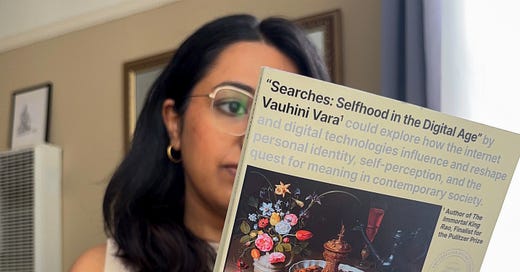



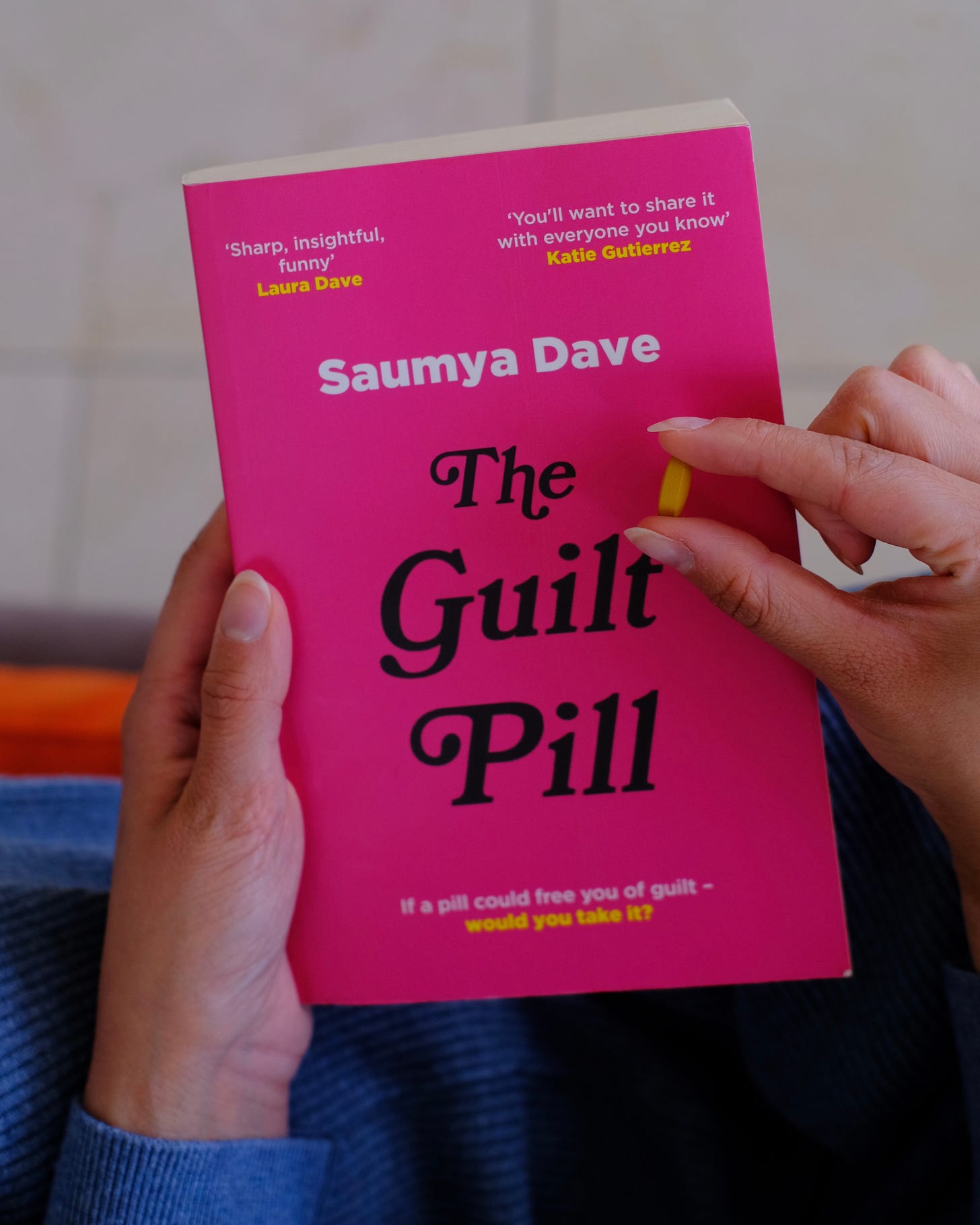
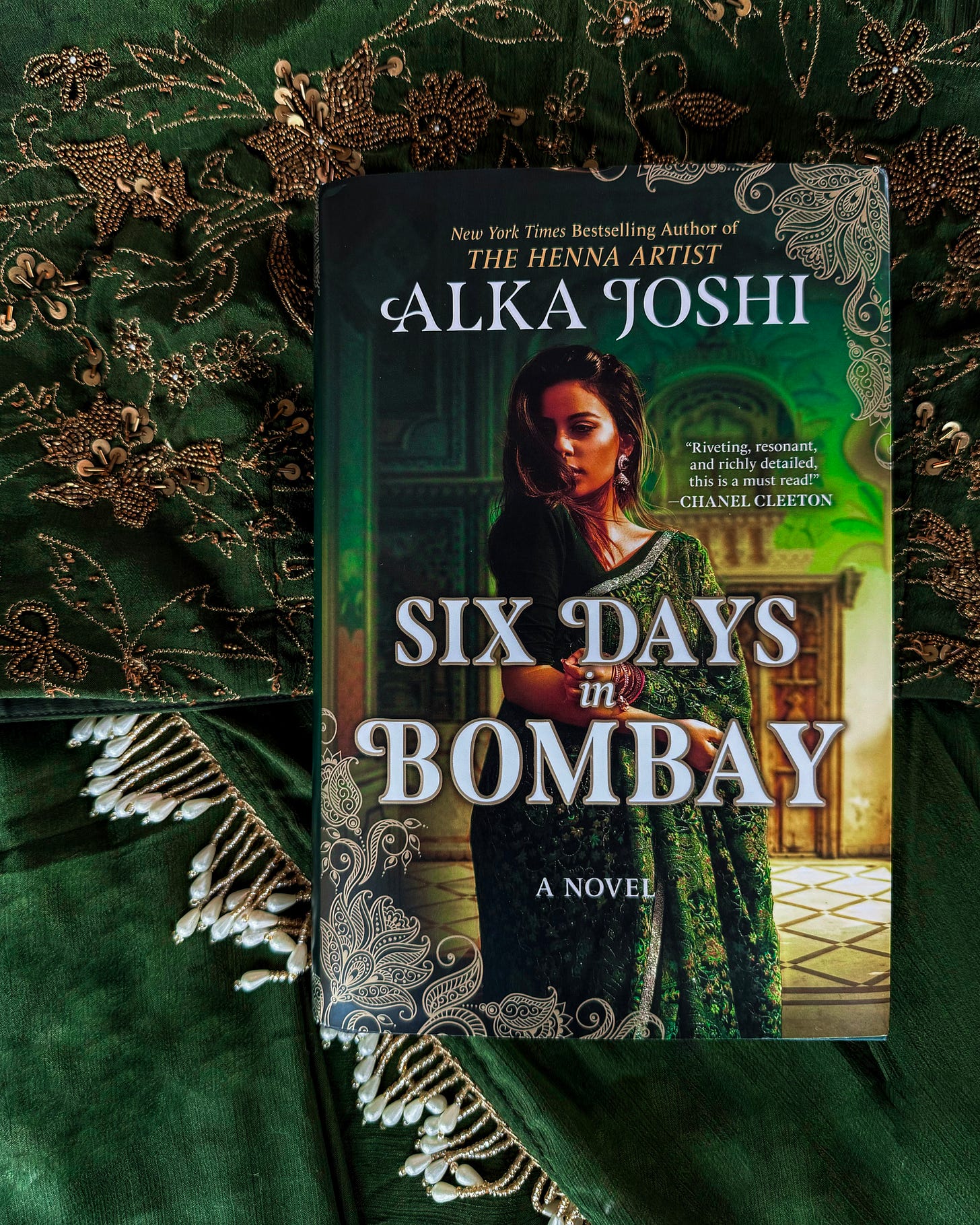
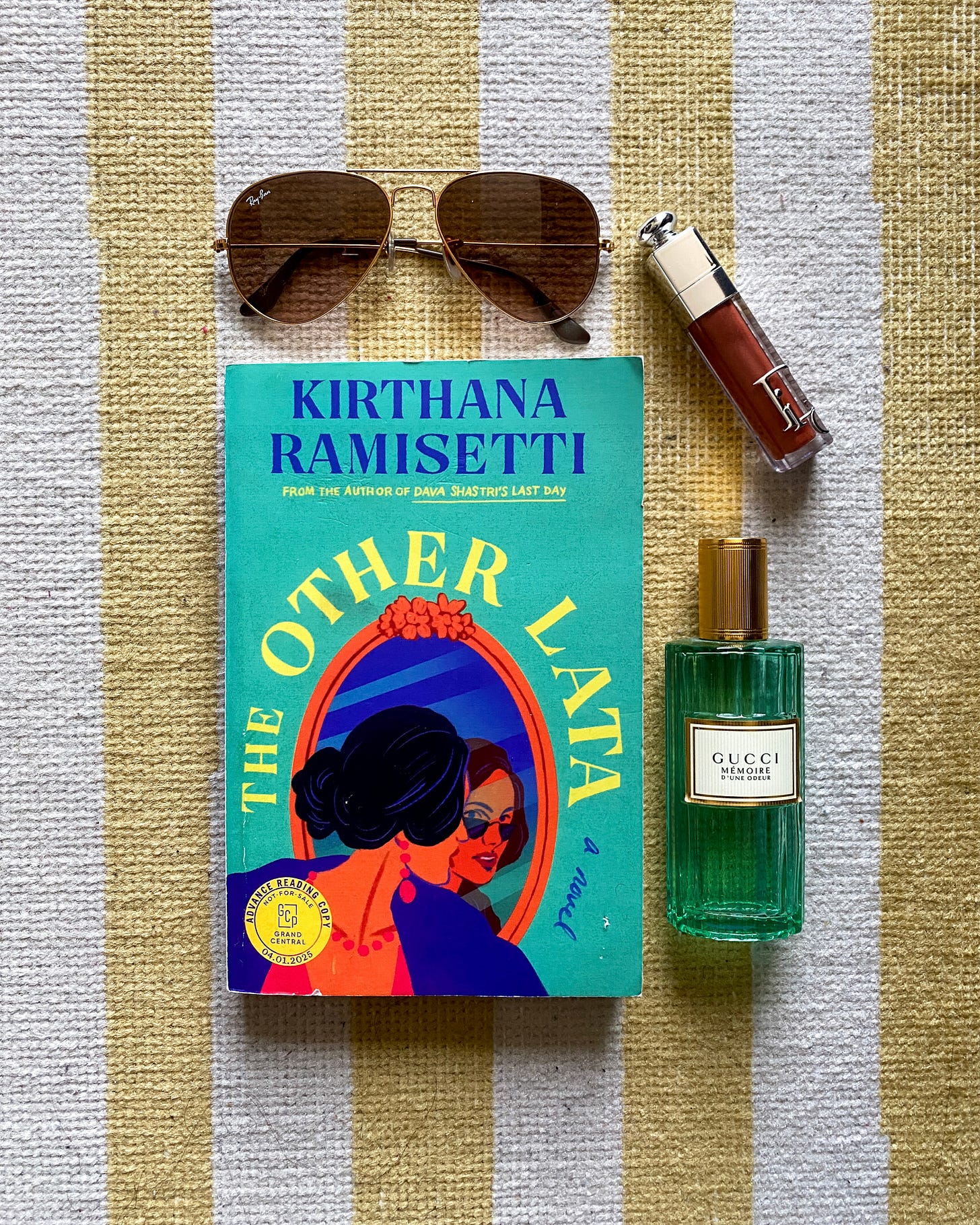
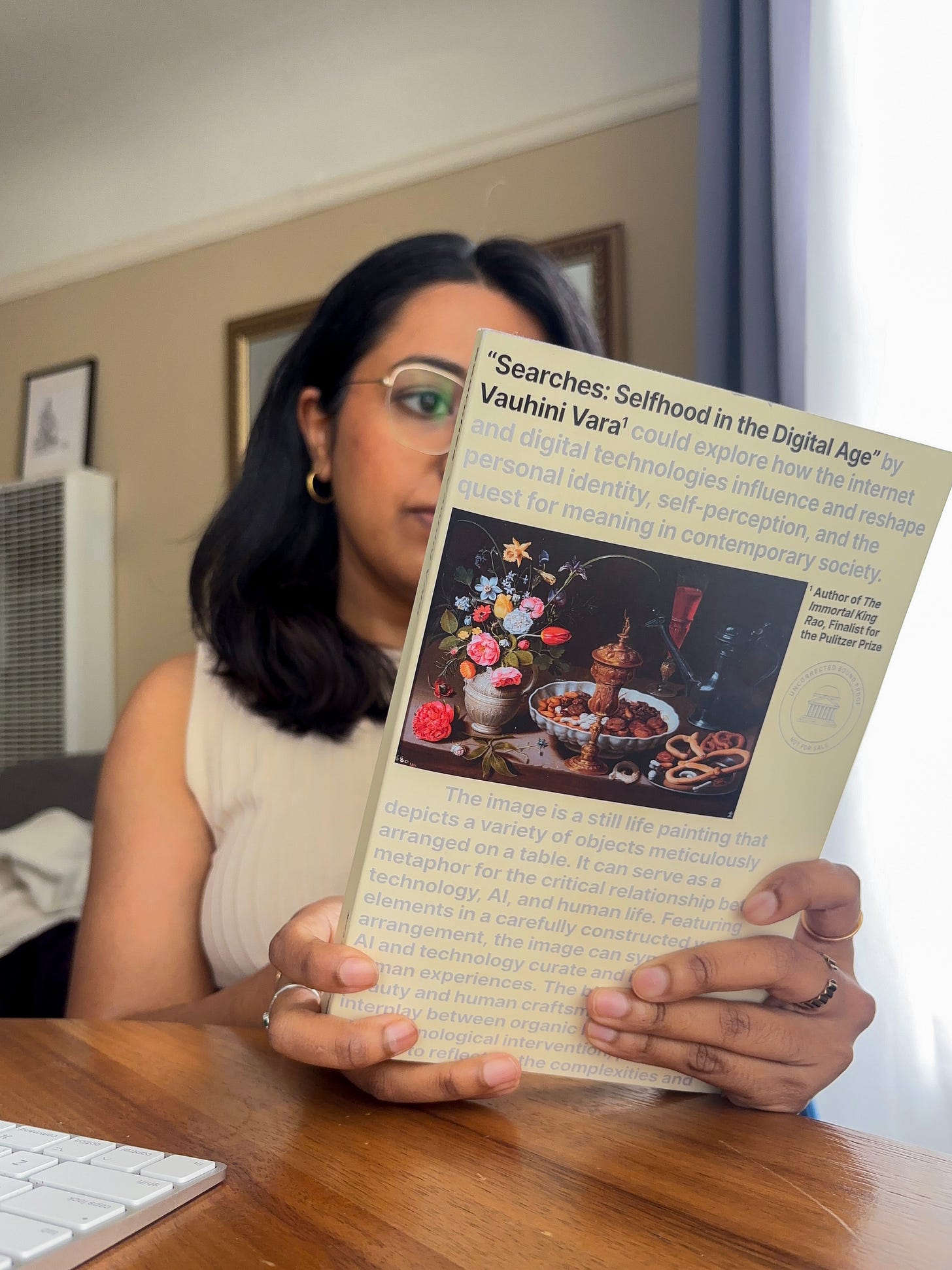

I self published my first short story collection. Many of those stories had been published in prestigious journals. I gained readers and confidence and went on to traditionally publish two books after that.
🥳🥳🥳